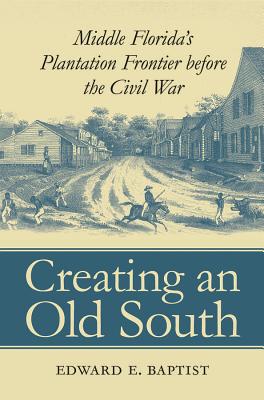

 University of North Carolina Press
University of North Carolina Press
Creating an Old South: Middle Florida's Plantation Frontier before the Civil War


Key Metrics
- Edward E Baptist
- University of North Carolina Press
- Paperback
- 9780807853535
- 9.1 X 6.1 X 1 inches
- 1.3 pounds
- History > United States - 19th Century
- English
 Secure Transaction
Secure TransactionBook Description
Soon after the United States acquired Florida from Spain in 1821, migrants from older southern states began settling the land that became Jackson and Leon Counties. Slaves, torn from family and community, were forced to carve plantations from the woods of Middle Florida, while planters and less wealthy white men battled over the social, political, and economic institutions of their new society.
Conflict between white men became full-scale crisis in the 1840s, but when sectional conflict seemed to threaten slavery, the whites of Middle Florida found common ground. In politics and everyday encounters, they enshrined the ideal of white male equality--and black inequality. To mask their painful memories of crisis, the planter elite told themselves that their society had been transplanted from older states without conflict. But this myth of an Old, changeless South only papered over the struggles that transformed slave society in the course of its expansion. In fact, that myth continues to shroud from our view the plantation frontier, the very engine of conflict that had led to the myth's creation.
Author Bio
I focus on the history of the 19th-century United States, and in particular on the history of the enslavement of African Americans in the South. The expansion of slavery in the United States between the writing of the Constitution in 1787 and the outbreak of the Civil War in 1861 had enormous consequences for all Americans.
Indeed, the expansion shaped many elements of the modern world that we now live in, both inside and outside the borders of the United States. I am writing a book about that process: the experience of the slave trades and forced migrations that drove expansion, the systems of labor that emerged, the economic and political and cultural consequences for women and men and children.
Source: Cornell University - The Department of History
Community reviews
Write a ReviewNo Community reviews






